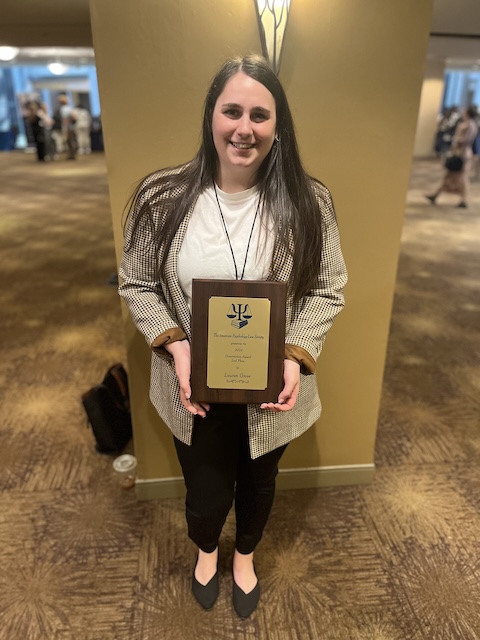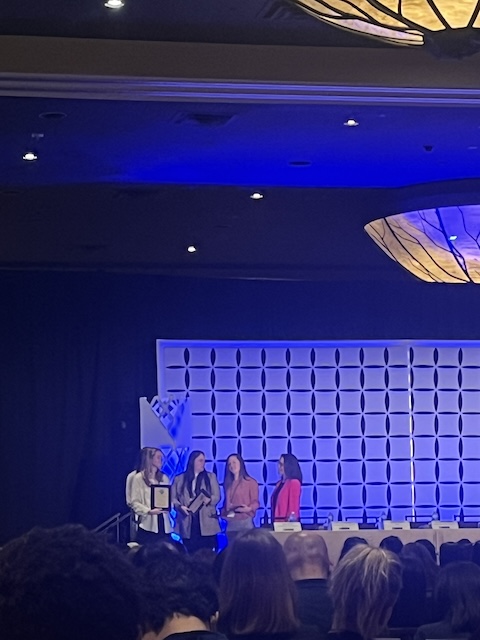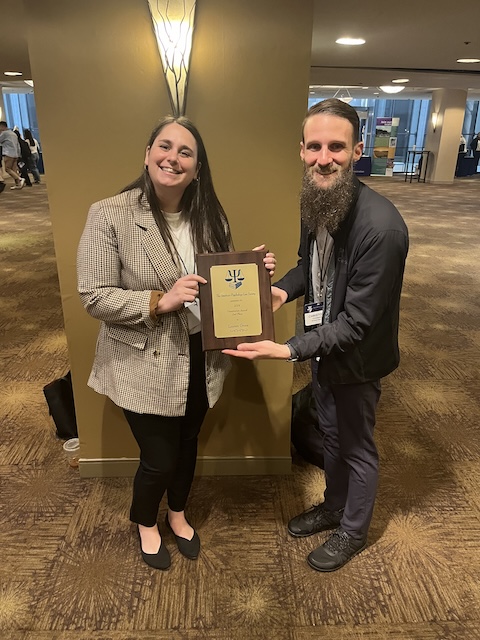Dr. Lauren Grove received the second-place dissertation award from the American Psychology-Law Society for her dissertation titled, "An Analysis of the Sophistication–Maturity of Justice and Non-Justice Involved Youth and Young Adults."
The abstract of the dissertation reads:
Juvenile transfer refers to a set of mechanisms whereby a juvenile’s case may be processed in criminal court. Forensic mental health evaluators often assess youths’ risk/dangerousness, sophistication–maturity, and treatment amenability to assist judicial determinations regarding youth disposition. Of these three factors, sophistication–maturity—in which the law is concerned with the extent to which a juvenile defendant’s criminal sophistication and maturity level parallels that of an adult—has traditionally been the most challenging for practitioners to define and apply in practice. The Risk-Sophistication-Treatment Inventory (RSTI) is the only commercially available, specialized forensic assessment instrument for the assessment of youths’ sophistication–maturity. However, this tool has not yet been comprehensively examined with young adults, which precludes direct youth-adult comparisons to assist with the interpretation of a juvenile defendant’s sophistication–maturity to inform transfer. The current study examined RSTI-measured developmental maturity and criminal sophistication among a sample of justice-involved young adults (N = 102) and non-justice involved college students (N = 103) aged 18–29 years, using secondary data. Young adults’ sophistication–maturity was compared to that of justice-involved adolescents derived from the RSTI’s normative sample (N = 591). The RSTI’s sophistication–maturity scale demonstrated moderate to good interrater reliability with young adults. Interrater reliability estimates for the criminal sophistication scale were mixed. Justice-involved young adults exhibited significantly higher average levels of sophistication–maturity than justice-involved adolescents. While non- justice-involved young adults exhibited higher average levels of developmental maturity, the reliability of criminal sophistication for this group was doubtful. Findings from the current study suggest that justice-involved young adults may constitute an important comparison group for interpreting youths’ sophistication-maturity for transfer. Implications for advancing developmentally informed transfer policies, enhancing the assessment of youths’ sophistication– maturity for transfer, and promoting rehabilitative efforts that are focused on youths’ healthy, psychosocial development are discussed.



